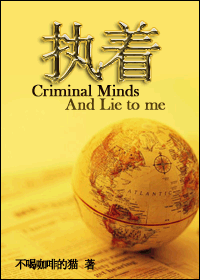The Ghost(英文版)-第15章
按键盘上方向键 ← 或 → 可快速上下翻页,按键盘上的 Enter 键可回到本书目录页,按键盘上方向键 ↑ 可回到本页顶部!
————未阅读完?加入书签已便下次继续阅读!
); the quiet; apolitical values of the English provinces in the sixties; where the only sounds to be heard on a Sunday were church bells and the chimes of ice cream vans; the muddy Saturday morning games of football at the local park and the long summer afternoons of cricket down by the river; his father’s Austin Atlantic and his own first Raleigh bike; the comics—theEagle and theVictor —and the radio comedies—I’m Sorry; I’ll Read That AgainandThe Navy Lark ; the 1966 World Cup Final andZ Cars andReady; Steady; Go!; The Guns of Navarone andCarry On; Doctor at the local movie theater; Millie singing “My Boy Lollipop” and Beatles singles played at forty…five RPM on his mother’s Dansette Capri record player。
Sitting there in Rhinehart’s study; the minutiae of English life nearly half a century earlier seemed as remote as bric…a…brac in a Victorian trompe l’oeil—and; you might have thought; about as relevant。 But there was cunning in my method; and Lang; with his genius for empathy; grasped it at once; for this was not just his childhood we were itemizing but mine and that of every boy who was born in England in the nineteen fifties and who grew to maturity in the seventies。
“What we need to do;” I told him; “is to persuade the reader to identify emotionally with Adam Lang。 To see beyond the remote figure in the bombproof car。 To recognize in him the same things they recognize in themselves。 Because if I know nothing else about this business; I know this: once you have the readers’ sympathy; they’ll follow you anywhere。”
“I get it;” he said; nodding emphatically。 “I think that’s brilliant。”
And so we swapped memories for hour after hour; and I will not say we began toconcoct a childhood for Lang; exactly—I was always careful not to depart from the known historical record—but we certainly pooled our experiences to such an extent that a few of my memories inevitably became blended into his。 You may find this shocking。 I was shocked myself; the first time I heard one of my clients on television weepily describing a poignant moment from his past that was actually frommy past。 But there it is。 People who succeed in life are rarely reflective。 Their gaze is always on the future: that’s why they succeed。 It’s not in their nature to remember what they were feeling; or wearing; or who was with them; or the scent of freshly cut grass in the churchyard on the day they were married; or the tightness with which their first baby squeezed their finger。 That’s why they need ghosts—to flesh them out; as it were。
As it transpired; I collaborated with Lang for only a short while; but I can honestly say I never had a more responsive client。 We decided that his first memory would be when he tried to run away from home at the age of three and he heard the sound of his father’s footsteps coming up behind him and felt the hardness of his muscled arms as he scooped him back to the house。 We remembered his mother ironing; and the smell of wet clothes on a wooden frame drying in front of a coal fire; and how he liked to pretend that the clotheshorse was a house。 His father wore a vest at table and ate pork dripping and kippers; his mother liked the occasional sweet sherry and had a book calledA Thing of Beauty with a red…and…gold cover。 Young Adam would look at the pictures for hours; that was what first gave him his interest in the theater。 We remembered Christmas pantomimes he had been to (I made a note to look up exactly what was playing in Leicester when he was growing up) and his stage debut in the school nativity play。
“Was I a wise man?”
“That sounds a little smug。”
“A sheep?”
“Not smug enough。”
“A guiding star?”
“Perfect!”
By the time we broke for lunch; we had reached the age of seventeen; when his performance in the title role of Christopher Marlowe’sDoctor Faustus had confirmed him in his desire to become an actor。 McAra; with typical thoroughness; had already dug out the review in theLeicester Mercury ; December 1971; describing how Lang had “held the audience spellbound” with his final speech; as he glimpsed eternal damnation。
While Lang went off to play tennis with one of his bodyguards; I dropped by the downstairs office to check on the transcription。 An hour’s interviewing generally yields between seven and eight thousand words; and Lang and I had been at it from nine till nearly one。 Amelia had set both secretaries on the task。 Each was wearing headphones。 Their fingers skimmed the keyboards; filling the room with a soothing rattle of plastic。 With a bit of luck I would have about a hundred double…spaced pages of material to show for that morning’s work alone。 For the first time since arriving on the island; I felt the warm breath of optimism。
“This is all new to me;” said Amelia; who was bent over Lucy’s shoulder; reading Lang’s words as they unfurled across the screen。 “I’ve never heard him mention any of this before。”
“The human memory is a treasure…house; Amelia;” I said; deadpan。 “It’s merely a matter of finding the right key。”
I left her peering at the screen and went into the kitchen。 It was about as large as my London flat; with enough polished granite to furnish a family mausoleum。 A tray of sandwiches had been laid out。 I put one on a plate and wandered around the back of the house until I came to a solarium—I suppose that’s what you would call it—with a big sliding glass door leading to an outside swimming pool。 The pool was covered with a gray tarpaulin depressed by rainwater; on which floated a brown scum of rotting leaves。 There were two silvered wooden cube…shaped buildings at the far end; and beyond those the scrub oak and the white sky。 A small; dark figure—so bundled up against the cold he was almost spherical—was raking leaves and piling them into a wheelbarrow。 I presumed he must be the Vietnamese gardener; Duc。 I really must try to see this place in summer; I thought。
I sat down on a lounge; releasing a faded odor of chlorine and suntan lotion; and called Rick in New York。 He was in a rush; as usual。
“How’s it going?”
“We had a good morning。 The man’s a pro。”
“Great。 I’ll call Maddox。 He’ll be glad to hear it。 The first fifty thousand just came in; by the way。 I’ll wire it over。 Speak to you later。” The line went dead。
I finished my sandwich and went back upstairs; still clutching my silent phone。 I had had an idea; and my newborn confidence gave me the courage to act on it。 I went into the study and closed the door。 I plugged Amelia’s flash drive into my laptop; then I attached a cable from my computer to the cell phone and dialed up the internet。 How much easier my life would be; I reasoned—how much quicker the job would be done—if I could work on the book in my hotel room each night。 I told myself I was doing no harm。 The risks were minimal。 The machine rarely left my side。 If necessary; it was small enough to fit under my pillow while I slept。 The moment I was online; I addressed an email to myself; attached the manuscript file; and pressed Send。
The upload seemed to take an age。 Amelia started calling my name from downstairs。 I glanced at the door and suddenly my fingers were thick and clumsy with anxiety。 “Your file has been transferred;” said the female voice that for some reason is favored by my internet service provider。 “You have email;” she announced a fraction later。
Immediately I yanked the cable out of the laptop; and I had just removed the flash drive when somewhere in the big house a klaxon started。 At the same time there was a hum and a rattle above the window behind me and I spun round to see a heavy metal shutter dropping from the ceiling。 It descended very quickly; blocking first the view of the sky; then the sea and the dunes; flattening the winter afternoon to dusk; crushing the last sliver of light to blackness。 I groped for the door and when I flung it open the unfiltered sound of the siren was strong enough to vibrate my stomach。
The same process was happening in the living room: one; two; three shutters falling like steel curtains。 I stumbled in the gloom; cracking my knee against a sharp edge。 I dropped my phone。 As I stooped to retrieve it; the klaxon stalled on a rising note and died with a moan。 I heard heavy footsteps coming up the steps; and then a saber of light flashed into the big room; catching me in a furtive crouch; my arms flung up to shield my face: a parody of guilt。
“Sorry; sir;” came a policeman’s puzzled voice from the darkness。 “Didn’t realize there was anyone up here。”
IT WAS A DRILL。They held it once a week。 “Lockdown;” I think they called it。 Rhinehart’s security people had installed the system to protect him against terrorist attack; kidnap; hurricanes; unionized labor; the Securities and Exchange Commission; or whatever passing nightmare currently stalked the restless nights of theFortune 500。 As the shutters rose and the pale wash of Atlantic light was released back into the house; Amelia came into the living room to apologize for not having warned me。 “It must have made you jump。”
“You could say that。”
“But then I did rather lose track of you。” There was an edge of suspicion to her manicured voice。
“It’s a big house。 I’m a big boy。 You can’t keep an eye on me all the time。” I tried to sound relaxed; but I knew I radiated unease。
“A word of advice。” Her glossy pink lips parted in a smile; but her big; clear blue eyes were as cold as crystal。 “Don’t go wandering round too much on your own。 The security boys don’t like it。”
“Gotcha。” I smiled back。
There was a squeak of rubber soles on polished wood and Lang came hurtling up the stairs at a tremendous rate; taking them two or three at a time。 He had a towel around his neck。 His face was flushed; his thick and wavy hair damped and darkened by sweat。 He seemed angry about something。
“Did you win?” asked Amelia。
“Didn’t play tennis in the end。” He blew out his breath; dropped into the nearby sofa; bent forward; and started vigorously toweling his head。 “Gym。”
Gym? I looked at him in am

![(Death Note同人)[DN同人]路过封面](http://www.667book.com/cover/13/13229.gif)
![(love live同人)[绘希]瞳中佳人封面](http://www.667book.com/cover/14/14128.gif)
![(天国王朝同人)[天国王朝同人]The Road To Jerusalem封面](http://www.667book.com/cover/17/17680.jpg)

![(韩娱同人)[韩娱]But I love U封面](http://www.667book.com/cover/17/17968.jpg)
